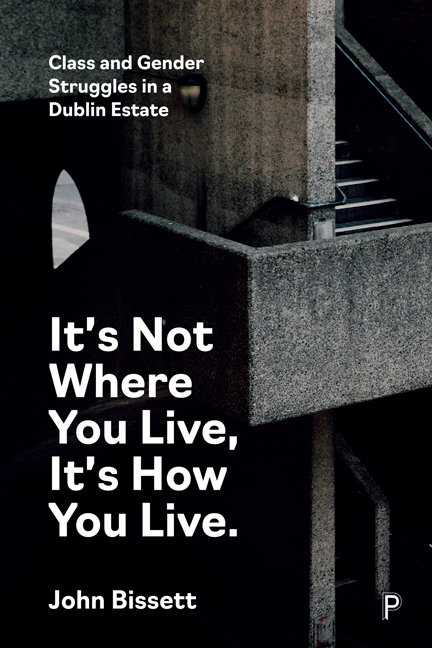11 - Class as the production of scarcity: wage, price, debt, food
Published online by Cambridge University Press: 17 January 2024
Summary
Scarcity is a profound and common characteristic of working-class life. It assumes the characteristics of doxa (Bourdieu, 1977, pp 159– 71) or common sense (Gramsci, 2005, pp 323– 377) and, while people feel it and often refer to it, difficulties remain in getting people to talk about it. Even its existence is contentious (see Ferriter, 2005, p 7). As Steph or Rosy or others say, “That's just the way it is.” Or as Michelle says, “Whatever hand you are dealt, you just have to get on with it.” My contention here is that the scarcity that is evident in this study is a product of the class positions and necessary relations that people find themselves in as an outcome of living in a capitalist society. In other words, it is neither accidental nor is it innate to individuals. A society that tethers its material and immaterial production to the private accumulation of wealth inexorably produces such graphic inequalities (Dorling, 2015; Streeck, 2017; Savage, 2021). This inevitably produces winners and losers, and in such monetised wealth stakes the people of the Bridgetown Estate are the losers. This produces particular forms of class- consciousness or what Raymond Williams described as ‘structures of feeling’. And while the liminal boundaries between classes may be fuzzy (Bourdieu and Wacquant, 1992), social classes share what Bourdieu called homologous or common conditions of existence that are outcomes of world historical class processes (Wallerstein, 1983). The Bridgetown Estate is inhabited by an objective social class sharing generally common conditions of existence (Weber, 1978, pp 926– 940; Savage et al, 1992; Olin Wright, 1997; pp 34– 37, 2015; Bourdieu, 2000, p 101; Umney, 2018). This is perhaps clearest from the nature of the work both paid and unpaid that people do, their subordinate and antagonistic position within class relations and their general state of propertylessness as a group. The nature of such conditions is evident at the empirical level in that the daily struggle for material survival is the font and origin of almost all practices on the estate. Consciousness is defined by practical struggles and efforts to overcome or to come to terms with scarcity and lack. In this sense it dominates and permeates life on the Bridgetown Estate. It determines the nature of being and practices and is a principle or axis around which life rotates as it flows through time.
- Type
- Chapter
- Information
- It's Not Where You Live, It's How You LiveClass and Gender Struggles in a Dublin Estate, pp. 102 - 107Publisher: Bristol University PressPrint publication year: 2023



